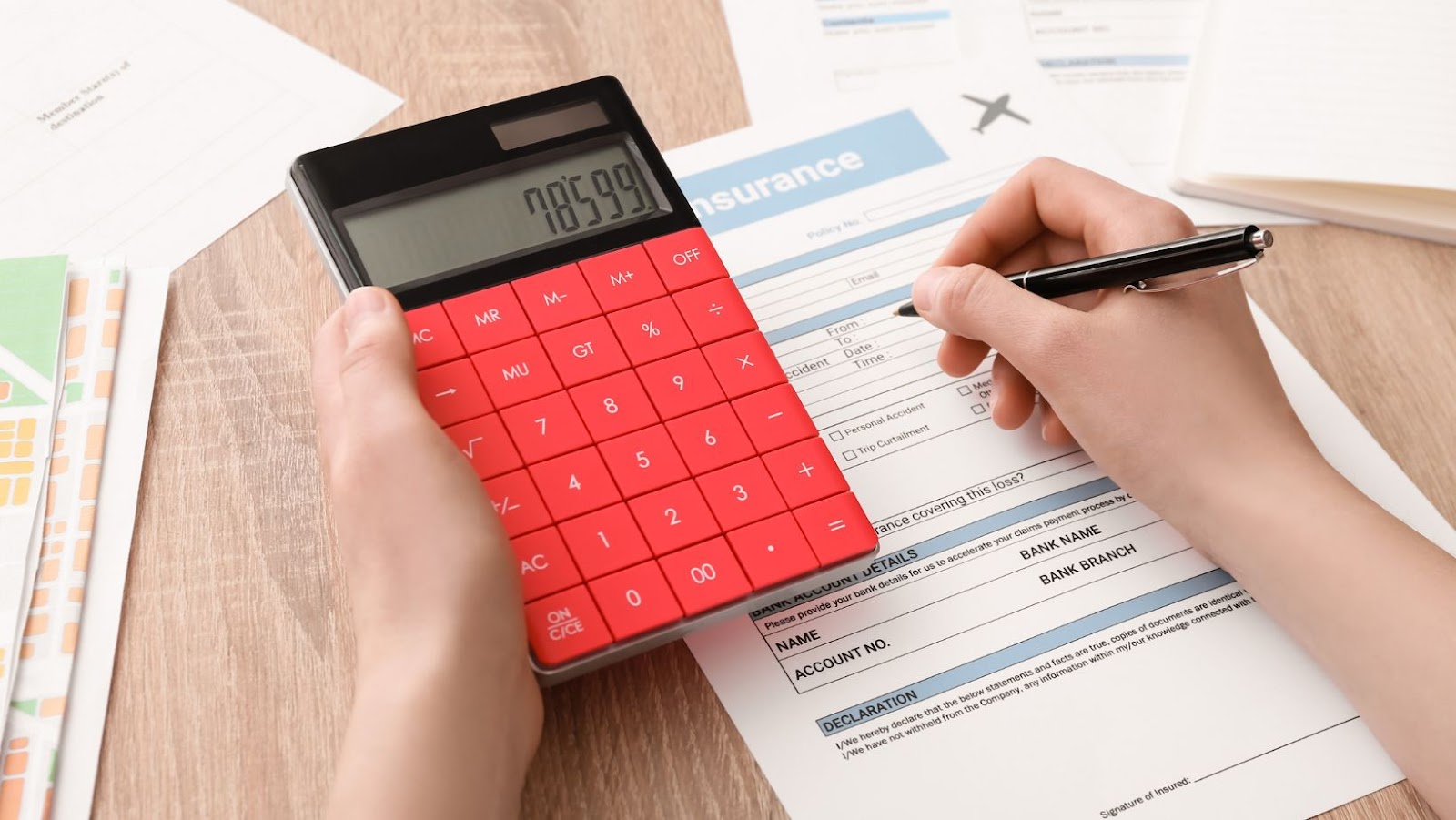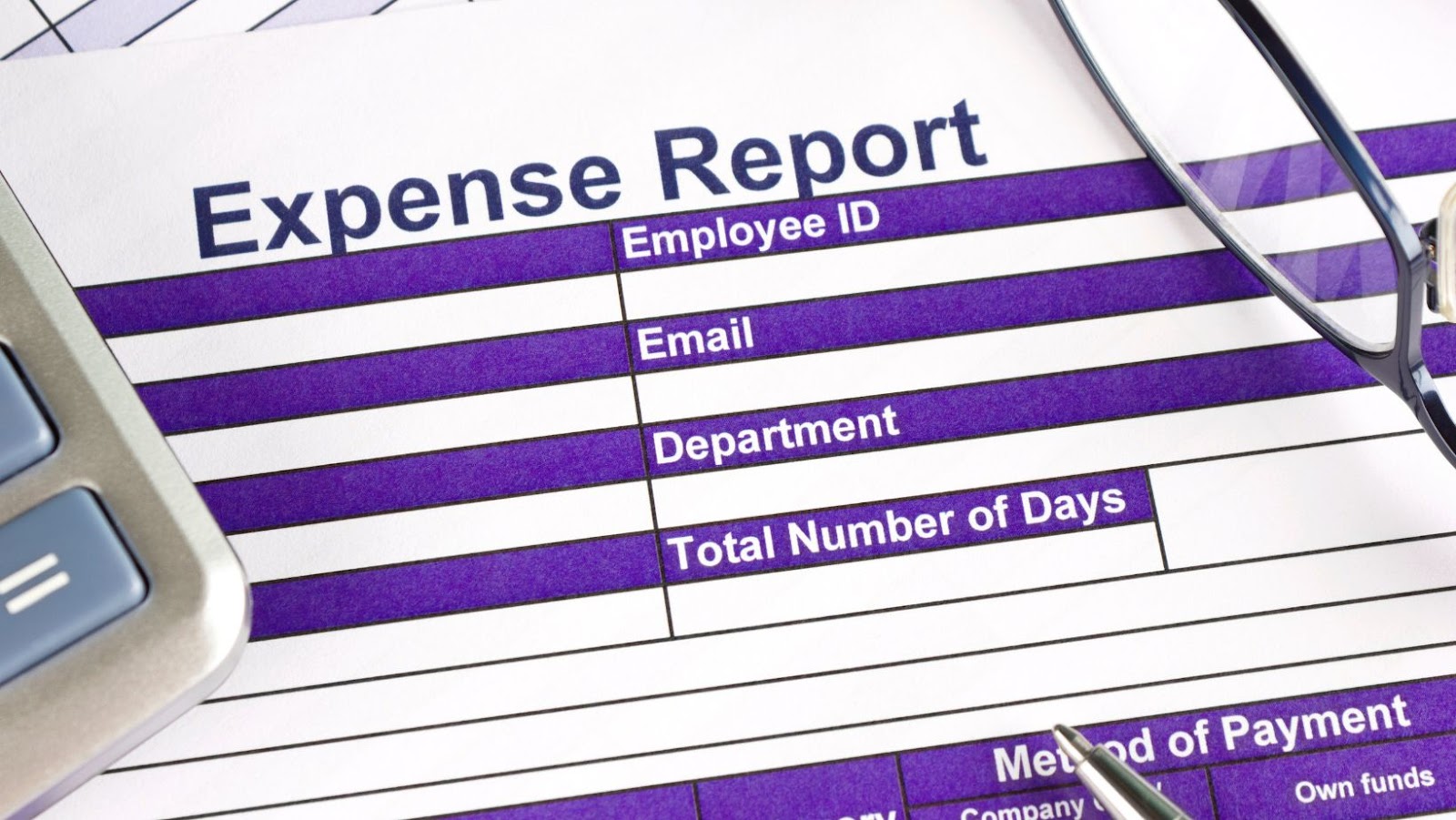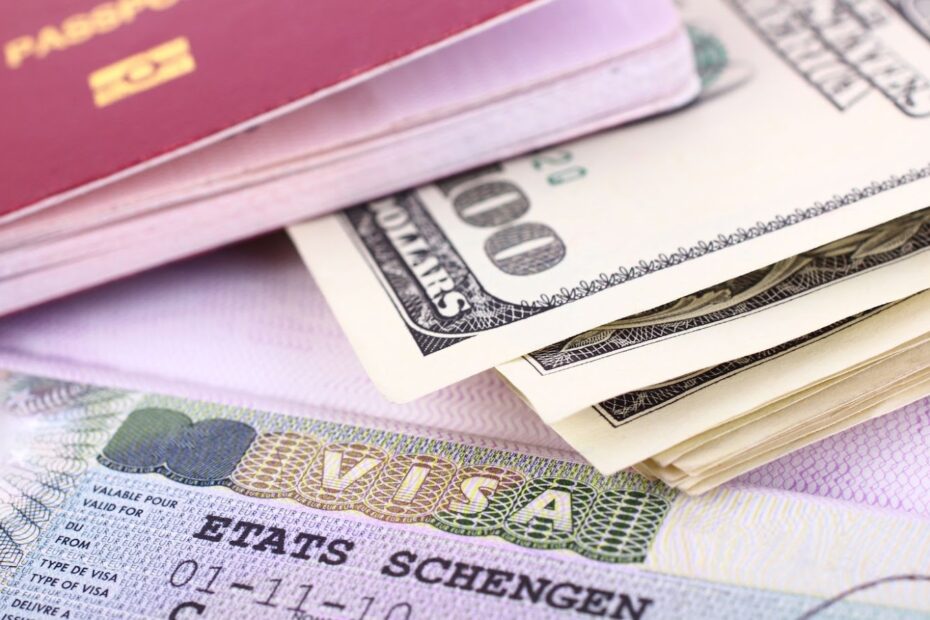As a self-employed individual, it is essential to understand the tax deductions that can be claimed for travel expenses. These deductions are designed to reduce your overall tax liability and can be quite beneficial in reducing your taxable income.
When it comes to understanding the travel expense tax deduction, there are several records that you need to keep. These include receipts for all business-related expenses such as airfare, lodging, meals, rental cars, and other transportation costs. It’s also important to keep track of the dates of your travel, as well as the purpose of your trip.
In addition to the above information, it’s important to know that not all travel expenses are tax-deductible. Expenses incurred while on vacation or engaging in personal activities cannot be claimed as a business expense. It’s also crucial to remember that if you use your car for both personal and business purposes, you need to keep accurate records of your mileage so that you can determine what percentage of your car usage was for business purposes.
To ensure that you have all the necessary records when claiming travel expenses as a tax deduction, we recommend keeping detailed and organized records throughout the year. Use a separate credit card or bank account solely for business-related expenses so that it is easy to distinguish between personal and business transactions. Finally, consider using a digital system such as an app or software program to help simplify record-keeping.
By keeping track of these details and being diligent about record-keeping, you can make your tax filing process much simpler while maximizing all allowable deductions available for self-employed individuals’ travel expenses.
Pack your bags and grab your receipts, because these eligible travel expenses are the ticket to a tax deduction that’s worth the journey.
What Travel Expenses are Tax Deductible for Self-employed
To make sure you’re eligible for tax deductions on travel expenses as a self-employed person, you need to understand what expenses qualify. In this section titled “Eligible Travel Expenses,” we’ll cover the categories that matter the most. Keep reading to find out about transportation costs, lodging expenses, meals and entertainment, and other miscellaneous expenses that may qualify for tax deductions.
Transportation Costs
Transportation Expenses encompass the costs related to traveling from one place to another. It includes various modes of transportation like airfare, rail fares, car rental expenses, and bus fares.
Below is a table illustrating different types of transportation expenditures:
|
Mode of Transportation |
Costs Involved |
|
Air Travel |
Airfare, Baggage Fees, Upgrades |
|
Rail Travel |
Train Tickets, Seat Reservations |
|
Car Rental |
Rental Fees, Fuel Costs, Parking |
|
Bus Travel |
Bus Fare |
It is worth noting that mileage expenses incurred for personal cars used for business purposes are not considered under transportation expenses.
To maximize your eligible travel expense claims, make sure to keep track of all records and receipts during your journey. Neglecting to do so may result in missed reimbursements.
Ensure you claim eligible travel expenses to avoid missing out on additional refunds and deductions.
If you’re spending more on lodging expenses than your actual mortgage, it might be time to consider downsizing… or starting a hotel chain.
Lodging Expenses
For your convenience, we have listed the expenses you may claim while travelling related to your lodging.
- Accommodation costs: You can claim accommodation expenses such as hotel bills, motel bills or other similar accommodations.
- Meals: Meals provided by the hotel or motel are not eligible for a tax deduction. However, on proof of separate meal expenses incurred during travel, up to certain limits may be claimed.
- Concierge and luggage service fees: Expenses paid for concierge and luggage services can also be considered eligible expenses.
- Parking fees: The cost of parking at the hotel’s parking lot or in other areas may qualify for a tax deduction. If there is no alternative available to park your vehicle nearby the accommodation.
- Miscellaneous Expenses: Include internet service fees, dry-cleaning charges directly charged by the hotel or housekeeping tips directly paid by you as part of the lodging expense claims.
Please note that if you plan on staying with family members or friends while traveling, no amount can be claimed under lodging expenses.
Pro Tip: Maintain all receipts, invoices and proof of payment in case of an audit.
Food and fun on the company’s dime? Count me in, just don’t ask me to expense the fried scorpions at that one restaurant.
Meals and Entertainment
For expenses relating to sustenance and leisure, businesses may claim reimbursement for company-related travel. This covers meals and entertainment while on a business trip or when entertaining clients.
|
Categories |
Limits |
|
Meals |
Actual costs up to $75 per person |
|
Entertainment |
50% of the actual costs incurred |
Additionally, expenses should be reasonable in value and frequency. They must serve a legitimate business goal, such as client-related dinners or meetings with potential investors.
In some cases, businesses may need to provide details on the attendees, purpose and location of the meal or entertainment event. This information aids in proving that the expenditure was within legal bounds.
Historically, these expenses have been heavily scrutinized by tax authorities due to potential misuse or abuse. However, proper record-keeping and adherence to guidelines can help mitigate risks of non-compliance.
When it comes to claiming miscellaneous expenses, remember: no, the $10 you spent on a novelty keychain shaped like a taco does not count as a legitimate business expense.

Other Miscellaneous Expenses
Other Unspecified Expenses
This category of expenses includes costs that are not covered by the other predefined categories. These miscellaneous expenses usually relate to emergency supplies, tips, and cost increments due to delays or layovers.
Other miscellaneous expenses incurred during travel include:
- Fees for passport processing, visas, and related services
- Cost of travel insurance, which may also include medical insurance
- Expenses for key documents such as birth certificates or marriage certificates
- Personal expenses like laundry, grooming, phone calls or internet access
It’s essential to be mindful of these additional charges when traveling and budgeting adequately. In unexpected circumstances where additional expenses crop up, keep a record of them as they might be claimable in unforeseen cases.
Did you know that according to Expensify’s 2019 Spend Trends report, the average hotel stay expense was $134 per night?
Keeping track of your travel records may not be fun, but it’s worth it if you want to avoid an audit from the IRS.
Records Required for Travel Expense Tax Deduction
To ensure that you qualify for the travel expense tax deduction, you need to keep accurate records. The Records Required for Travel Expense Tax Deduction section with Receipts and Invoices, Travel Log and Dates, Business Purpose of Travel, and Travel Itinerary and Schedule as solution provides information on what records you need to keep to claim travel expenses.
Receipts and Invoices
For the purpose of claiming travel expense tax deduction, documentation is crucial. Proper record-keeping will assist in providing evidence to the Internal Revenue Service (IRS) that the expenses are valid and incurred during business travel.
A detailed table can be created to keep track of receipts and invoices. The table should consist of columns such as date, description, amount, vendor name, and business purpose. This will ensure that no necessary information is missed out when documenting expenses. An example of such a table can be:
|
Date |
Description |
Amount |
Vendor Name |
Business Purpose |
|
02/01/21 |
Flight from NYC to LA |
$500 |
Delta Airlines |
Attend client meeting |
|
02/03/21 |
Dinner with Clients |
$100 |
Spago Restaurant |
Discuss new project |
It’s essential to note that receipts must include all relevant information such as proof of payment, vendor name, date, location and business purpose. This applies to all travel expenses including transportation, meals, lodging and entertainment.
Pro Tip: A good practice is to take photos or make electronic copies of all receipts as they may fade over time or get lost while travelling. Keep these records organized and easily accessible for future reference if required by the IRS.
Keeping track of travel dates might feel like a chore, but at least you’ll have a solid alibi for that unexplained absence from work.
Travel Log and Dates
To qualify for the travel expense tax deduction, maintaining proper records is essential. One of the key requirements is to record your travel log and dates accurately.
Here are six key points to keep in mind when maintaining your travel log and dates:
- Record the date of departure and return for each trip.
- Mention the locations you traveled from and to, including the purpose of travel.
- Include information about transportation modes used during the trip (e.g., flights, rentals, taxis).
- Document all accommodation expenses, meals, entertainment costs, and other incidentals during your travels.
- Keep receipts, invoices, tickets or any other supporting documents associated with each expense item.
- Avoid personal expenses mixing with business expenses or claims that are not related to the business trip.
It’s important to note that the IRS closely scrutinizes travel-related deductions. Hence keeping proper records is fundamental to avoid tax penalties.
For instance, failing to record accurate information about dates may result in missed opportunities for deductions or having some expenses disqualified.
Therefore it’s strongly advised that you maintain a detailed record of your travels as it pertains to specific transactions relating them with relevant bills at hand.
Make sure that your bookkeeping matches your bank statements accurately without manipulation so as not lose valuable benefits.
Because who wouldn’t want to travel for business purposes? It’s like getting paid to take a mini vacation…with more paperwork.
Business Purpose of Travel
Travel expenses are tax-deductible if they are incurred for business-related purposes. The reason behind your travel should be significant to your profession. Trips made mainly to ease personal living arrangements do not count as tax-deductible travel.
When claiming the deduction, you should provide proof that your travel had a business purpose. Receipts of purchases, invoices of hotel stays, transportation tickets and any necessary permits acquired contribute to tax-deduction claims.
It is vital to keep records such as trip date, time frame, destination, number of days stayed and business purpose when it comes to claiming travel related tax deductions. A detailed record can assist you in calculating the amount spent on business-related activities accurately.
A fellow marketer once recounted about how he failed in providing sufficient evidence for his travels’ reasons; he was not only disqualified from receiving any refunds but also had earned an audit by the Internal Revenue Service (IRS). Therefore his advice was always to keep all records organized right from the start.
Who needs an adventure-packed itinerary when you can just start every day with a cup of coffee and a stack of expense reports?
Travel Itinerary and Schedule
When it comes to claiming travel expenses as tax deductions, having a comprehensive and accurate Travel Documentation is crucial. Here’s an overview of the essential records you must maintain when it comes to ‘Travel Itinerary and Schedule.’
To demonstrate the importance of maintaining a Travel Itinerary and Schedule record, let’s take a look at a sample table.
|
DATE |
ACTIVITY |
LOCATION |
|
01/06/21 |
Meetings with Client A |
New York |
|
02/06/21 |
Internal Team Meeting |
Boston |
|
03/06/21 |
Site Visit of production facility |
Connecticut |
Since these records are considered legal documents, they must be kept up-to-date and accurate for taxation purposes. In addition, having a detailed itinerary can help you make better use of your time while traveling. Furthermore, if you’re working remotely due to COVID restrictions, this document can help in verifying your whereabouts during work hours.
It’s important to note that an itinerary should include all activities planned — both business and personal — along with relevant dates and locations.
For example, Tom was on a business trip for three days. During that time, he had two meetings with clients on day one & two respectively; on day two evening he played golf with his friend – not applicable for tax deduction but required in the itinerary as proof & compensated by Tom himself.
Ensuring that your travel documentation is thorough can save you from headaches down the road. Keeping records may not be as exciting as a wild night out, but it’s the only way to avoid an even bigger headache with the IRS.

How to Keep and Organize Records
To keep and organize records for your travel expense tax deduction needs, turn to digital record-keeping tools, paper record-keeping system, and tips for keeping accurate records. These sub-sections can help you find a solution that works best for your record-keeping needs.
Digital Record-Keeping Tools
Digital tools for managing records electronically are essential in today’s age. Employing digitization as a method of record-keeping can significantly help with data management and organization while making access to the necessary information much more efficient.
A table created using , tags can be an excellent way of understanding digital record-keeping tools better. The table should contain columns that showcase the types of digital tools, their specific functions, and their respective advantages. Here is an example:
|
, and |
|
Digital Record-Keeping Tools |
Functions |
Advantages |
|
Cloud Storage Services |
Data storage and retrieval |
Universal accessibility to important files from various devices |
|
Electronic Signature Software |
Sign documents |
Saves time by eliminating manual signatures |
|
Document Management Systems |
Store, manage, share documents |
Increases collaboration among team members |
It is worth noting that each tool serves a unique purpose in electronic record-keeping systems. While some focus on securing information and strengthening cyber protection protocols, others prioritize user-friendliness or collaborative potential.
Pro Tip: Ensure that you periodically assess your digital record-keeping tools and adjust them to keep up with emerging technology trends.
Who needs a time machine when you can just dig through a stack of old paperwork for hours?
Paper Record-Keeping System
Keeping and organizing paper records can be a daunting task for many individuals and businesses. While it may seem old-fashioned in the digital age, a paper record-keeping system can provide a reliable backup to electronic records and also make information easily accessible.
To create a paper record-keeping system, one can start by organizing their documents into different categories such as invoices, receipts, contracts, and correspondence. A table can be created with columns for these categories and additional columns for date, description, amount, and any other pertinent information. This table should be updated regularly to ensure accuracy.
In addition to categorizing documents and creating a table, it is important to establish an efficient filing system. Documents should be labeled clearly with the appropriate category and subcategory if necessary. Filing cabinets or storage boxes should also be organized in alphabetical or chronological order to enable easy retrieval of documents when needed.
Interestingly, paper record-keeping dates back centuries ago when scribes would meticulously transcribe legal and financial transactions onto parchment or papyrus scrolls. As organizations grew more complex, so did their records management systems leading to the development of modern-day filing cabinets and databases.
Overall, maintaining an effective paper record-keeping system requires attention to detail, organization skills and regular updates. By putting these practices into place, individuals can ensure that their paper records will be readily available whenever needed.
Remember, if your records are more accurate than your aim with a Nerf gun, you’re doing it right.
Tips for Keeping Accurate Records
Keeping Organized Records: A Professional Guide
Maintaining accurate records is vital for any business or organization. Here are a few quick tips to help with keeping organized records:
- Create a filing system that makes sense for your company and clearly label all files so they can be easily accessed and identified.
- Record everything – no matter how small or insignificant it may seem. This ensures that information is readily available when needed.
- Regularly back up digital records to avoid data loss in case of hardware failure or other unexpected incidents.
It’s important to note that record keeping goes beyond just financial documents. Keep detailed notes of projects, meetings, and any communication exchanged. By doing so, you will establish a clear record of the decision-making process.
To make things even easier, consider investing in software specifically designed for record keeping. Many products have features such as automated backups, customizable templates, and easy collaboration with team members.
Good record keeping is particularly useful during tax season and ensures your company remains compliant with relevant laws and regulations.
Don’t let disorganized records hold you back from success. Follow these tips for accurate and comprehensive record keeping.
Travel expenses may not be deductible if you’re using a unicorn as your mode of transportation.
Instances When Travel Expenses are not Eligible for Tax Deduction
Some travel expenses are not eligible for tax deduction. Expenses that are purely personal or unrelated to business do not qualify. Additionally, costs incurred for non-business-related activities during a business trip, such as sightseeing or entertainment, cannot be claimed. Furthermore, commuting costs between the home and permanent workplace are also excluded.
It is essential to remember that unreasonably high expenses that do not comply with the IRS regulations may also be disqualified. For example, lavish meals or luxury accommodations do not qualify under allowable expenses. It is important to maintain detailed records of all expenses to avoid disqualification during an audit.
To ensure eligibility for the tax deduction claim, keep track of expenses like lodging, transportation, meals and incidentals while travelling away from home on business assignments. Proper documentation of dates, locations and time spent on these activities is necessary to support your claim.
According to historical data in some cases, individuals have tried to claim vacations as business trips by merely conducting a meeting or two on their travels and including multiple leisure activities in their itinerary. However, such practices often result in disqualifications after an IRS investigation.
Pack your bags and your receipts, because claiming your travel expenses just got a whole lot easier.

Claiming Travel Expense Tax Deduction
To claim a travel expense tax deduction, managing records is crucial. The main objective of this section “Claiming Travel Expense Tax Deduction” with “Methods for Claiming Tax Deduction, Filing Deadlines and Forms, Deduction Limits and Restrictions” as sub-sections is to help you understand how to claim a tax deduction successfully. These sub-sections cover various approaches and tax regulations to ensure that you follow the right procedures and claim the maximum travel expense tax deduction you’re entitled to.
Methods for Claiming Tax Deduction
One of the ways to obtain tax deductions for expenses incurred during travels is by keeping receipts and claiming them as a deduction. There are several other methods for claiming travel expense tax deductions that can be used to reduce taxable income:
- Using mileage logs for business-related transportation
- Keeping track of expenses related to attending conferences or meetings
- Claiming deduction on lodging, meals, and other travel costs
- Deducting car rental and transportation fees during travel
- Special tax relief programs available for active military personnel
Additionally, being aware of specific IRS guidelines such as those outlined in Publication 463 can help maximize potential deductions when filing taxes related to travel expenses. By complying with official regulations, one can avoid complications and penalties later on.
Pro Tip: It is essential to keep an organized record of receipts and other relevant documentation in case of review by the authorities. Using specialized software or hiring a professional accountant can also provide helpful support during tax preparation.
Miss the deadline and you’ll have to add ‘procrastination tax’ to your expenses.
Filing Deadlines and Forms
The proper time limit and documents related to submitting travel expense tax deduction can be daunting. It is essential to know the exact duration and paperwork required.
Below is a table that outlines the timeline and necessary forms needed for filing travel expense tax deduction.
|
Timeline |
Forms Required |
|
January 31st |
Form 1099-MISC |
|
April 15th |
Form 1040 |
|
June 15th |
Estimated tax payment voucher |
It is important to note that specific professions have varying deadlines and requirements.
When submitting forms, make sure all personal details are correct, including the social security number. Mailing or electronically submitting the documents guarantees approval.
A significant amendment was made in January 2021 regarding documentation requirements for travel expenses deductions. Nevertheless, it remains essential to keep records of receipts, bills, mileage logs, and written documentation of meetings as a precautionary measure.
Looks like even the IRS doesn’t want you to live your best life, putting a cap on your travel expense deduction like a cheap hotel mini-bar.
Deduction Limits and Restrictions
The limitations and constraints on claiming travel expenses as a tax deduction are essential to understand. Here’s what you need to know:
|
Category |
Deduction Limit |
Restrictions |
|
Transportation |
$0.58 cents per mile for 2021 |
Only for business purposes, not personal errands or commuting. |
|
Lodging |
Actual cost |
Must be reasonable and necessary on business trips only. No family vacations. |
|
Meals and Incidentals |
$71/day for most locations within the U.S., $76/day for high-cost areas. |
Includes tips, taxes, laundry services, and other related expenses but does not include alcohol or extravagant meals. |
It’s worth noting that commuting expenses are generally not deductible unless you work from your home office, then commute to another workplace. Additionally, international travel may have different rates and restrictions depending on the country visited and the purpose of the trip.
A recent report from the IRS has stated that approximately one million taxpayers claim travel expense deductions every year.
Remembering these limits and restrictions can help avoid problems with the IRS and ensure that your reclaimed expenses meet regulatory requirements.
Remember, the IRS doesn’t take ‘I swear I spent $10,000 on tacos’ as a valid travel expense deduction.
Conclusion: Importance of Keeping Accurate Records for Travel Expense Tax Deduction
Accurate record-keeping of travel expenses is paramount for self-employed individuals claiming tax deductions. The burden of proof lies with the taxpayer to prove their claims, making accurate records necessary for compliance and avoiding audits. Maintaining receipts or similar documentation that show the amount, date, and business purpose of each expense incurred is essential.
Depending on the nature of the trip, various expenses may be deductible such as transportation, lodging, meals and entertainment. It is crucial to understand which costs can and cannot be claimed as a deduction. Mileage tracking is another area where detailed records are beneficial; taxpayers should use logs or applications that record dates traveled, destination, mileage and purpose.
It may be daunting to track every detail accurately, but it can benefit in the long run by making tax preparation more manageable come filing season while minimizing errors. Organizing expenses in digital applications or using accounting services can provide added benefits like tracking payments, categorizing deductibles or even scheduling appointments.
In summing up, keeping accurate records is critical to avoid problems during an audit and ensure eligibility for travel expense tax deduction claims against income taxes. Having organized documentation increases credibility while reducing stress on both parties during an audit while providing self-employed individuals with peace of mind knowing their books are in order.
